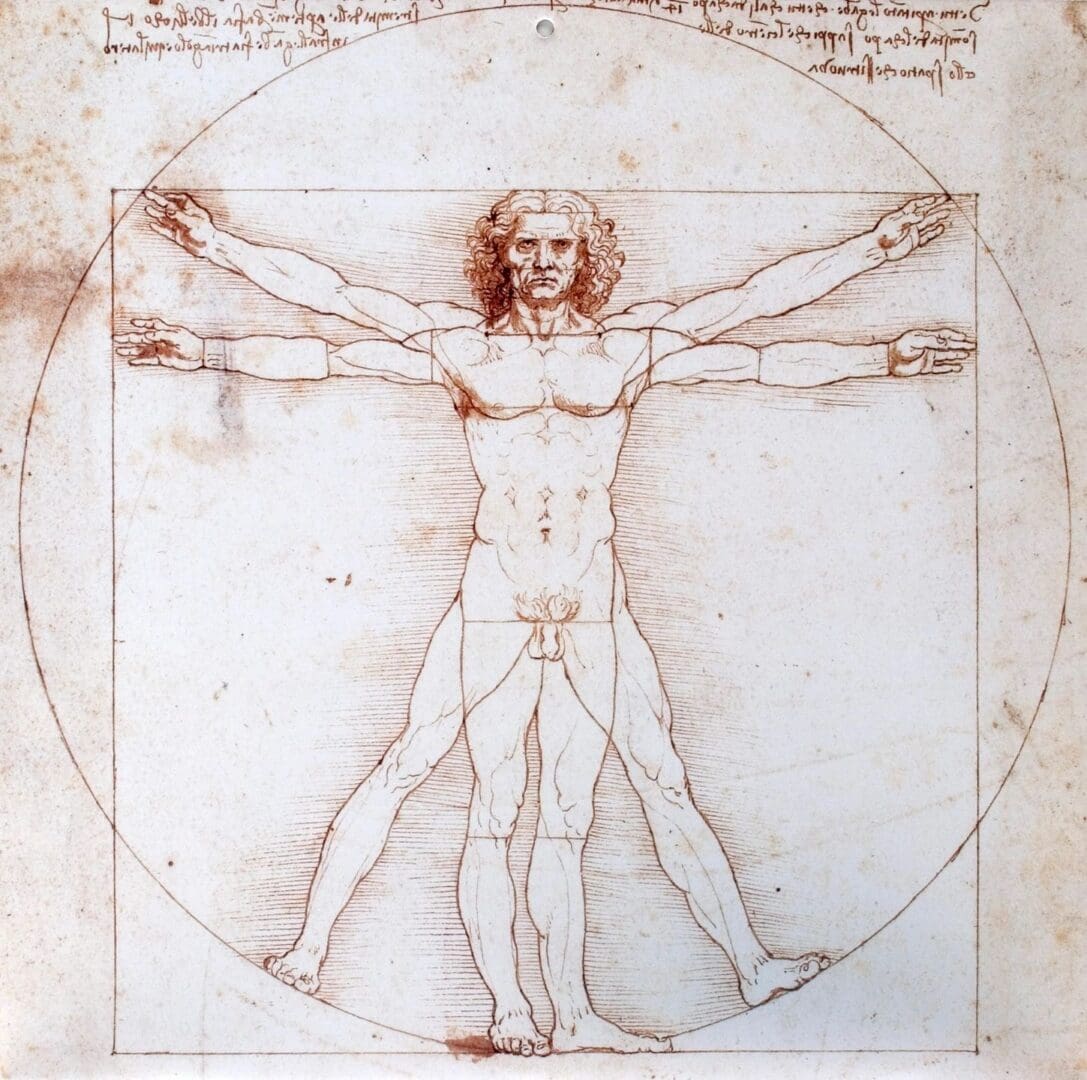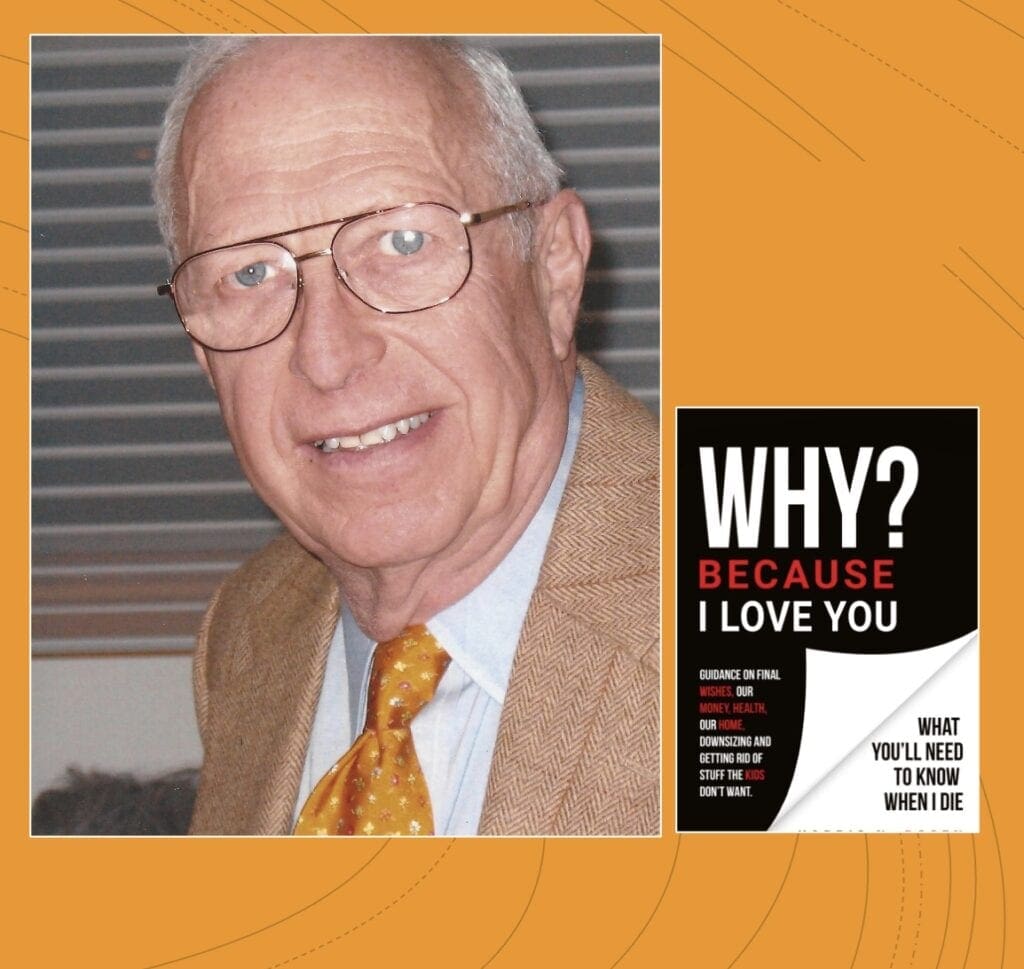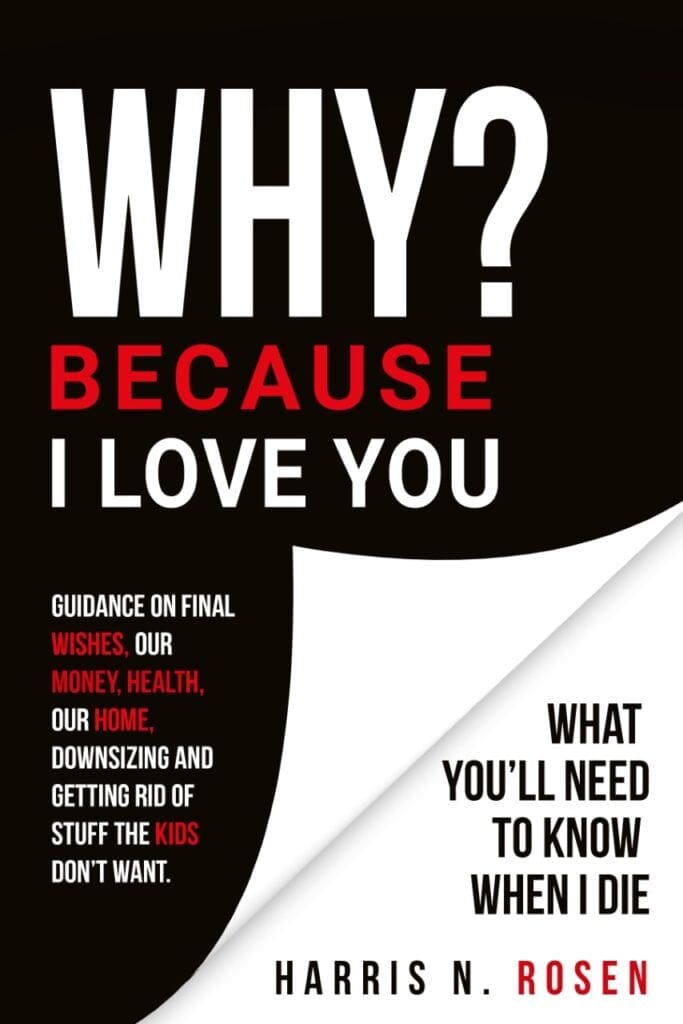Search Posts
Recent Posts
- Dr. Rosemary Costigan Named President of Community College of Rhode Island June 19, 2025
- RI Veterans: Did you know? 19.06.25 (Military Funerals, Job Fair, Benefits, Events) – John A. Cianci June 19, 2025
- East Providence First in U.S. to Equip All Firefighters with PFAS-free Gear June 19, 2025
- We Cook! Mill’s Tavern Saffron Bouillabaisse with Tarhana Lobster Jus June 19, 2025
- Rhode Island Weather for June 19, 2025 – Jack Donnelly June 19, 2025
Categories
Subscribe!
Thanks for subscribing! Please check your email for further instructions.

Organizing medical histories – Harris N. “Hershey” Rosen
by Harris N. “Hershey” Rosen – author, Why? Because I Love You
We’ve probably talked about our health status more than ever in 2020 and 2021. We’ve reviewed in our own minds if we might be considered “high risk” in this time of COVID-19. Do we have asthma, high blood pressure, how overweight are we, do we have – or have we had – pneumonia, did we smoke? What about our spouse? We’ve made mental notes of all these things. But – have we written it down? Will we be around if this information is needed – and needed quickly?
Could we rattle out – accurately – what medications we’re on – and what diseases we’ve had, and when? If you’ve ever had the services of a visiting nurse or home health aide you know how organized they are. They come in armed with notebooks and tabs – just for one person. We could take a bit of advice from them watching how they organized our medical information.
Useful information to gather, put in one place, or make a copy of and keep it in one spot you or your loved ones can easily access:
- Health insurance cards, Medicare cards, and so on
- Appointment reminder cards from health care providers
- A list of medications including dosages, frequency, date started and reason
- A medical history
- A list of emergency contacts, relationship, addresses and all phone numbers
- A sheet for recording the date of visits, the provider and any tests performed or instructions
- Any special logs such as blood pressure readings, blood sugar levels or symptoms
- A copy of a health care proxy, advanced directives or living will
- A power-of-attorney, if one is used
I like to use a presentation folder with clear pockets – and here are some tips on how to store the data:
- Label the cover. Whose information is this and what is the date it was created? Who created it? When you update it, note that date down, too.
- Keep the folder handy; in a desk drawer, or visible. Someplace anyone would look, and tell people what you’ve created and where it is – take a photo with your cell phone and mail it to them.
- Use clear sheet protectors to hold papers. This makes them easy to handle, and pull in and out.
- Ask your medical people for business cards and put them in the binder – that will save you from having to write down details – you could even staple the card onto the paper record.
- List your emergency contacts – and not just “each other” if you are a couple residing together – list, in order, who to contact in case of emergency.
- Don’t forget a page listing medications – again you can even take a photo of pills and staple it into the record. Note where the meds come from, what they are for, and don’t forget to update it to go along with your doctors’ latest directions.
- You may like your new notebook so much you will take it to doctors’ appointments with you – not a bad idea!
How’s your book coming along?
- Names of physicians and medical groups you go to
- Allergies and do-not-take medications
- Medicals you do take
- Health conditions
- Dates of exams, tests and immunizations, hospitalizations, surgeries, illnesses.
- Location of medical power of attorney – or copy of this document – as well as your living will
- General Family history of conditions, illnesses of immediate family
- Age and Cause of death of parents and immediate family
- Genetic information you may know about.
This is just a start! You’ll decide what format is best for you – if you have any tips, share them with us and we’ll share them here with you, too.
In the meantime, I hope you’ll order my book and enjoy reading about this topic and many others,, too!
You can read all my columns, here: https://rinewstoday.com/hershey-rosen/
_____

Harris “Hershey” Rosen, is the author of WHY? Because I Love You, a book that says it like it is – “What you need to know when I die”. His book details methods to organize your important personal and family information for those who are left behind.
A graduate of Harvard, Hershey Rosen has focused on controlling chaos since 1954. He was a Financial Control Officer in the U.S. Army, where he received a Letter of Commendation for improvement to its worldwide accounting system. Next, on to satisfying everyone’s sweet tooth, he ran a candy company for 40 years, developing a system for locating ANY item housed in five factories, covering 600,000 square feet.
Following “retirement,” Hershey went on to become a mediator and settled over 200 disputes for the state of Rhode Island and The Community Mediation Center of Rhode Island. He was also asked to team-teach management courses at the University of Rhode Island, where he enthusiastically challenged the text book with real-life experiences, to the delight and edification of the students.
Always passionate about assisting others, Hershey has been a director or trustee of numerous boards and organizations. He has written Creating A Guide So Your Loved Ones Can Go On Living! to help others protect their spouses (and families) from the intense stress that will occur if one does not share financial information and knowledge critical to a functioning home. He then wrote My Family Record Book, expanding on the information in his first book, and finally, in 2020, WHY? Because I Love You was published.
Hershey, who lives in Providence, Rhode Island, can now relax (ha!) with his beloved wife, Myrna, and enjoy visits with their combined five children and ten grandchildren.

“WHY? Because I Love You” – available here: https://amzn.to/32iXJqq
